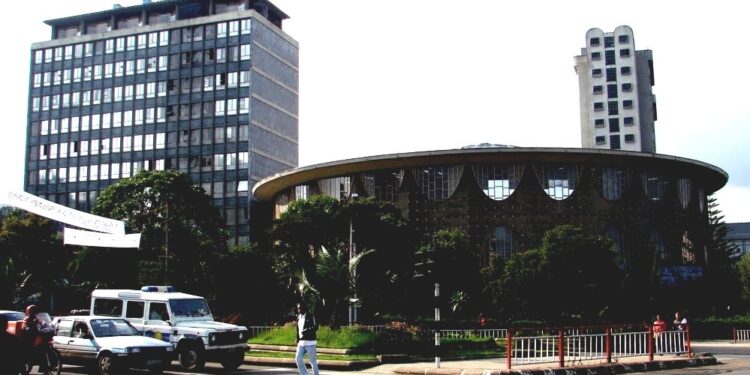Ethiopia’s banks and insurance firms are locked in a tax dispute over whether dividends used to pay off unpaid subscribed capital should be taxed. Around 25 financial institutions have already paid half of the 5.7 billion Br demanded by tax authorities to appeal the case, fearing decisions against them could weaken their ability to raise capital and discourage investment in the sector.
The Federal Large Taxpayers Office insists that a 10% tax applies to dividends used to cover shareholders’ unpaid capital, citing Article 61 of a 2016 tax law. Officials classify these dividends as liabilities rather than reinvestments, making them taxable. However, shareholders and banking executives argue that such dividends are reinvested earnings and should be exempt from taxes.
The Ethiopian Bankers’ Association (EBA), led by Abie Sano, president of the Commercial Bank of Ethiopia (CBE), has appealed to the Prime Minister’s Office. The EBA argues that taxing undistributed dividends meant for recapitalization lacks legal basis and could harm efforts to strengthen banks’ capital bases.
Legal Battle Heats Up
The dispute has reached the Federal Tax Appellate Commission and, in some cases, the Federal Supreme Court’s Cassation Bench. Awash Bank, one of Ethiopia’s largest private banks, has paid half of its disputed tax bill while awaiting a verdict. A loss could severely impact its ability to meet regulatory capital requirements.
A precedent for taxing such dividends was set in 2023 when federal tax authorities won a six-year legal battle against Tsehay Industries. The ruling classified dividends used to cover subscribed capital as taxable, sparking further audits across the financial sector.
Broader Implications
Banks face mounting pressure as they work to meet the National Bank of Ethiopia’s (NBE) directive requiring private banks to raise a minimum of five billion Birr in capital by 2026. Industry leaders warn that retroactive taxation could derail these efforts and discourage investment in the financial sector.
Critics of the tax, including shareholders like Girma Desalegn, say it undermines confidence in bank shares and penalizes reinvestment, which the central bank has encouraged to modernize the sector.
Seeking Clarity
The Ministry of Revenues (MoR) is drafting a directive to address the issue, but it remains stuck in approval. In the meantime, banks and insurance companies remain in legal limbo, with billions at stake.
Legal experts like Tadesse Lencho argue that dividends used to pay off subscribed capital are not fresh investments but payments for debts owed by shareholders, making them taxable. However, they also caution that aggressive tax collection could damage investor confidence in Ethiopia’s financial market, a key sector in the country’s economic reform agenda.
As the courts deliberate, the financial sector awaits clarity on an issue that could reshape its future.
Source: Addis Fortune























